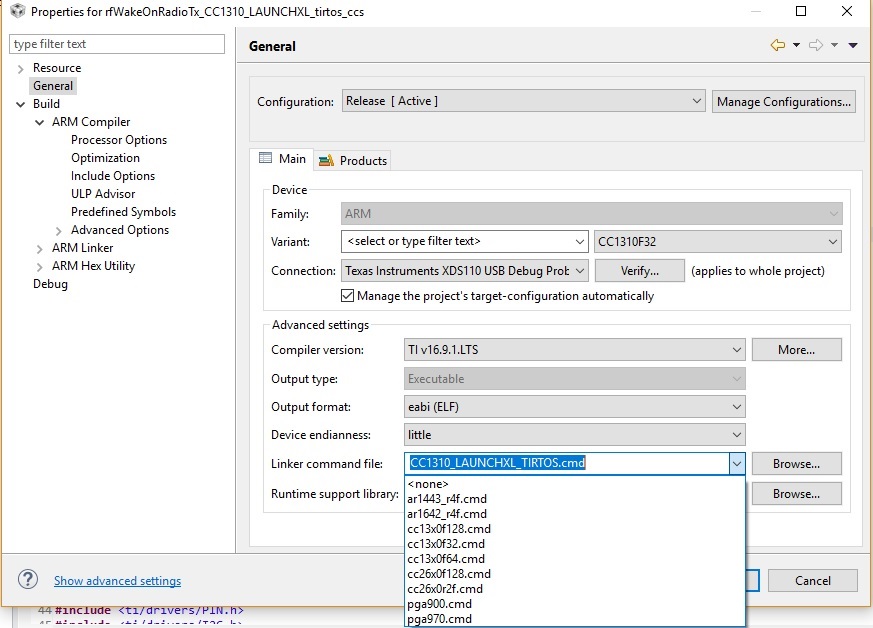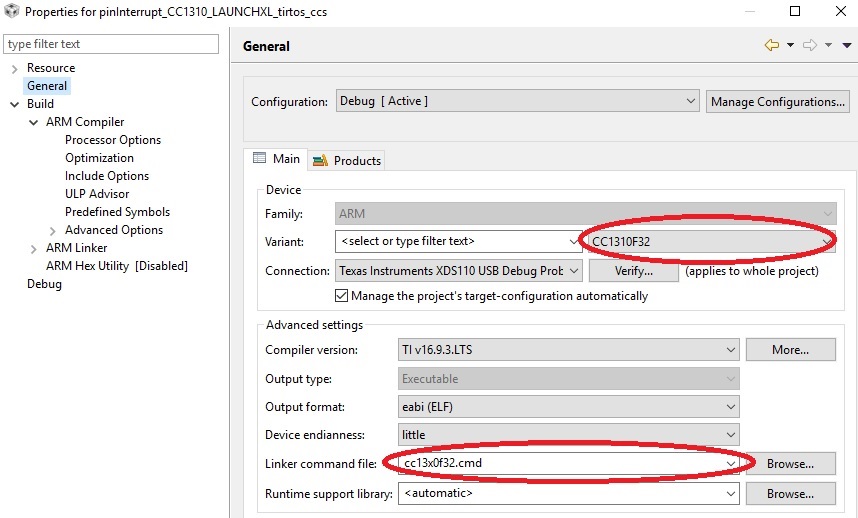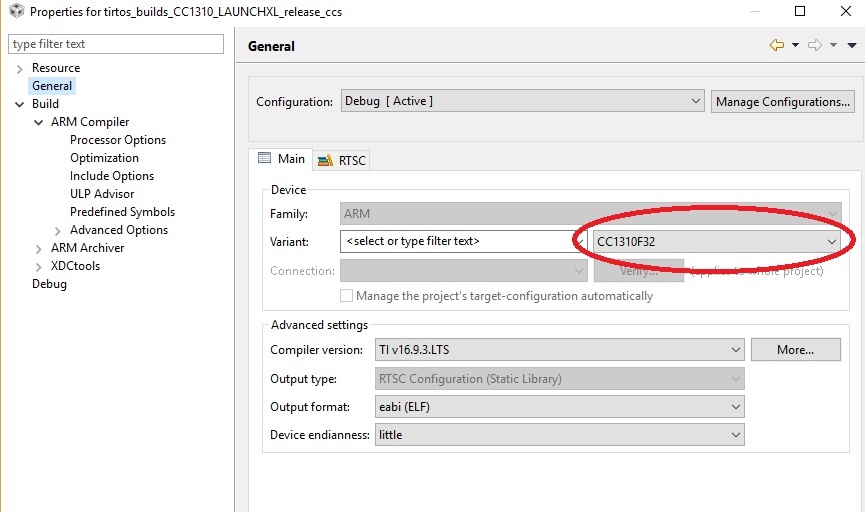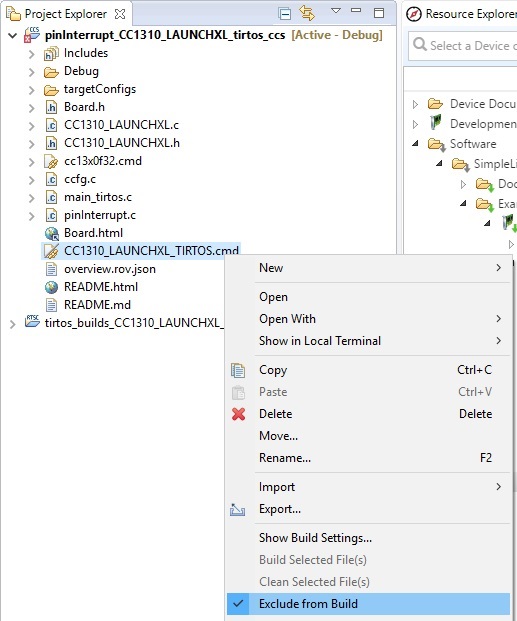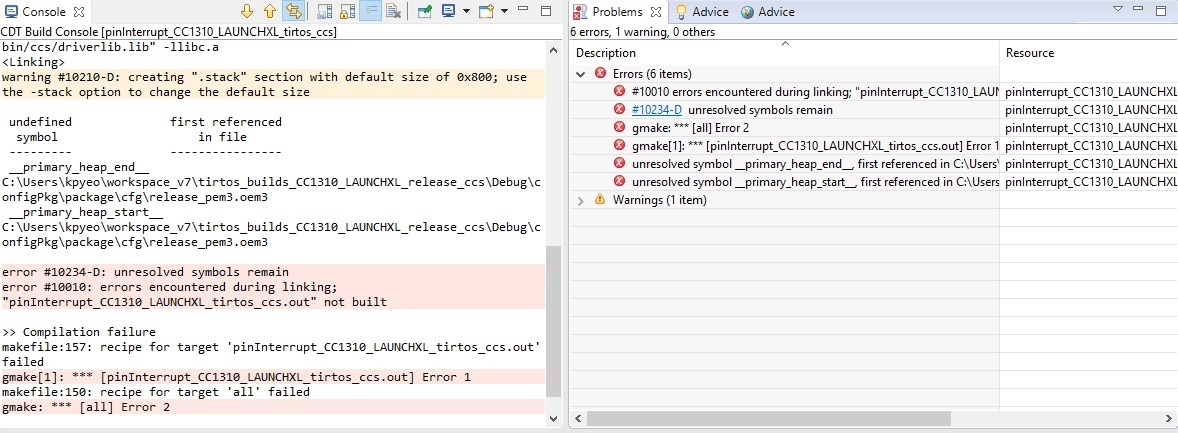Tool/software: Code Composer Studio
Hi all,
I am trying to compile a project from the CC1310F32. I am using an example project rfWakeOnRadioTx_CC1310_LAUNCHXL and made some modifications to it. The orignal project settings was for the CC1310F128 and it compiled without any problems.
I just made a custom PCB based on the CC1310F32 and I want to compile the project and generate the HEX file to download into the chip. I change the device to CC1310F32 but I don't know whether I need to leave the linker command file as it is or I will have to change it to cc13x0f32.cmd.
Anyone can advise on this?


